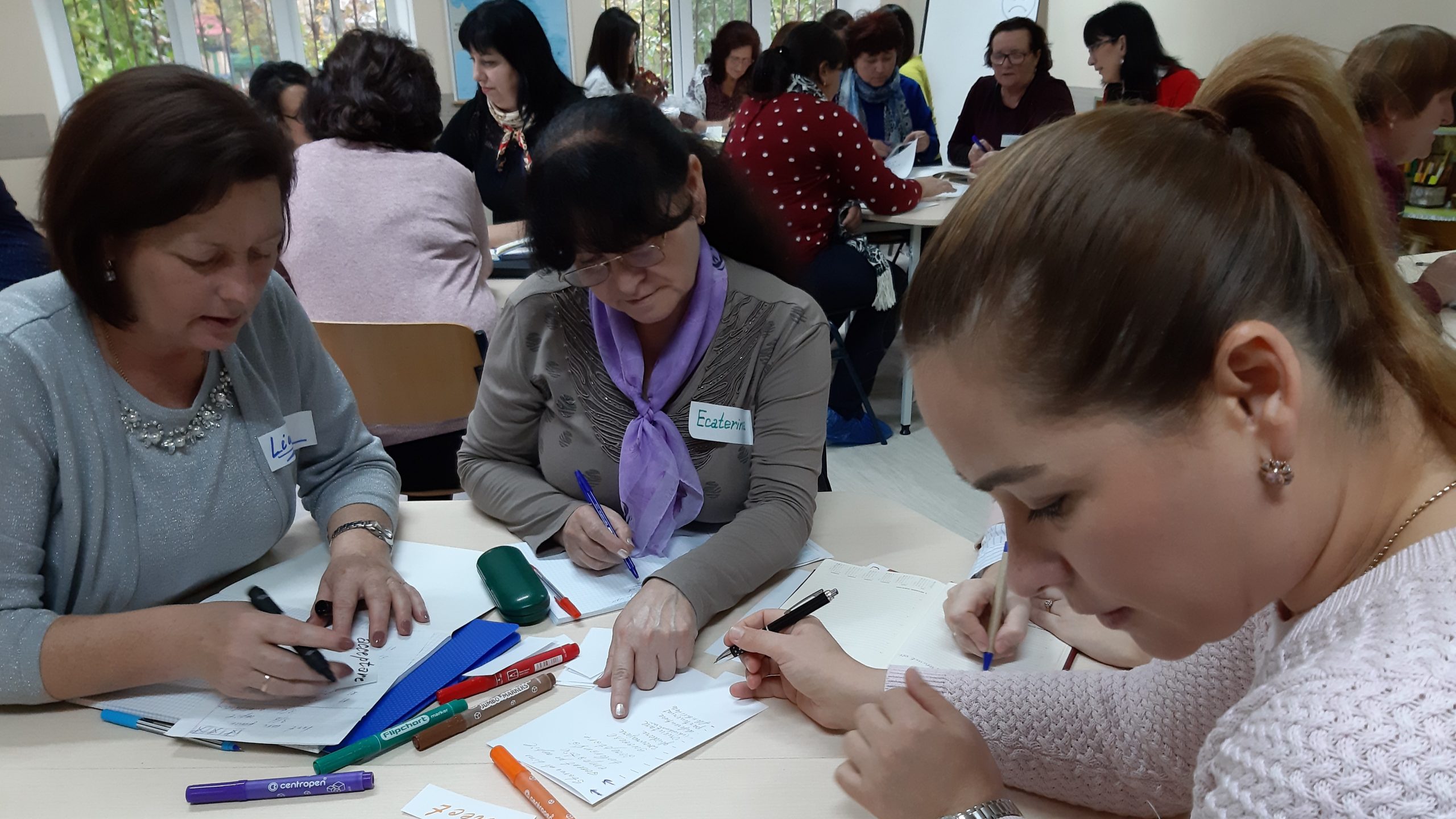Developing the democratic values-based approach in the Child-Friendly School (CFS) model (second phase)

Project duration : September, 2020 –July, 2021
Implementing organization: Programul Educaţional „Pas cu Pas” /Step by Step Moldova
Implementing partner: UNICEF Moldova
Project objective: deepening and expanding the positive results of the implementation of the holistic school transformation strategy based on CFS
The project was building on the lessons learnt from the pilot project implemented in 3 lyceums in Sangerei District (Sangerei, Pepeni, Radoaia).
The goal was to deepen and broaden the positive results of implementing the CFS-based holistic school transformation strategy, primarily focusing on 9 new institutions (2 in Sangerei and 7 in the district rural communities) with the whole range of project activities, while also involving at different levels other 25 institution, so as to extend the reach to all Sangerei District lyceums and gymnaziums, with a total number of of 8568 students.
The concept of Child Friendly School (CFS) is a comprehensive model of whole-school transformation processes. It responded to the priorities sated in the education system and was reflecting the relevant contextual changes at the country level which needed addressing multiple school level factors:
– demographic processes, particularly affecting schools in rural areas and in small towns, and an increasingly diversified school population
– schools’ scarce financial and human resources at local level, on the one hand, and the lack of schools’ capacity (including of needed leadership skills) to mobilize and use efficiently the existing ones for goal-oriented purposes, on the other hand
– poor teaching staff capacities to translate the modern requirements for quality (inclusive, relevant, child-centered) education into practice
– poor quality of education not only limits to some category of children with specific needs, but also de-motivates students in school and leaders to an increased number of drop-outs.
Through project activities (participatory self-evaluation exercised and facilitated joint different actor groups analysis) the schools were, first, helped to re-think their role in the light of the modern requirements towards education, particularly in the context of shifting priorities from strictly academic contents towards transferable skills, attitudes and values, while building on meaningful, authentic learning, as basis for the life-long learning, for children’s personal fulfillment and their social activism.
One of the principles of CFS approach is the quality of classroom practices based on a child-centered approachis one of the most important changes needed for inclusive education. The project focused on helping teachers to change their practices through interactive trainings and on-the-job individual and group mentoring, the latter format contributing to the creation of communities of reflective practitioners.